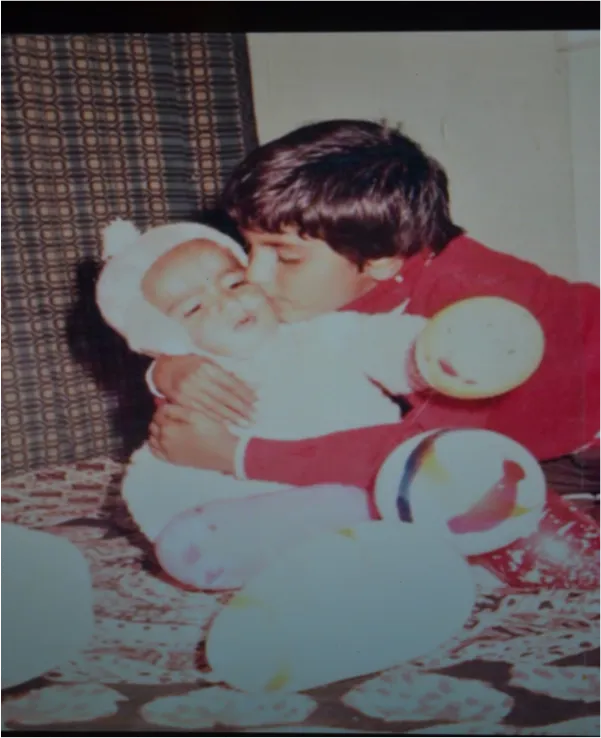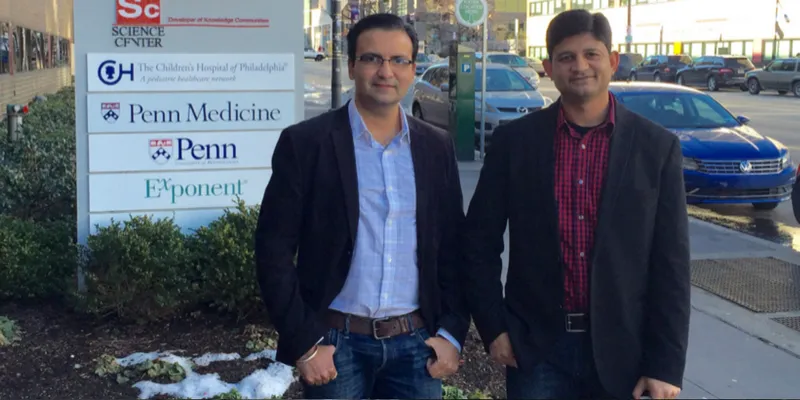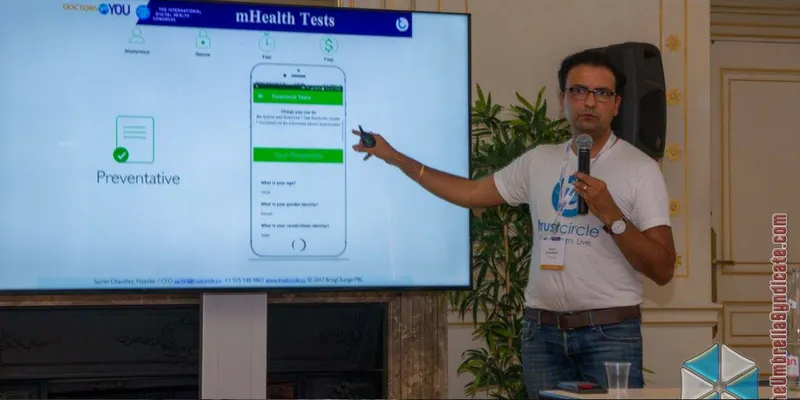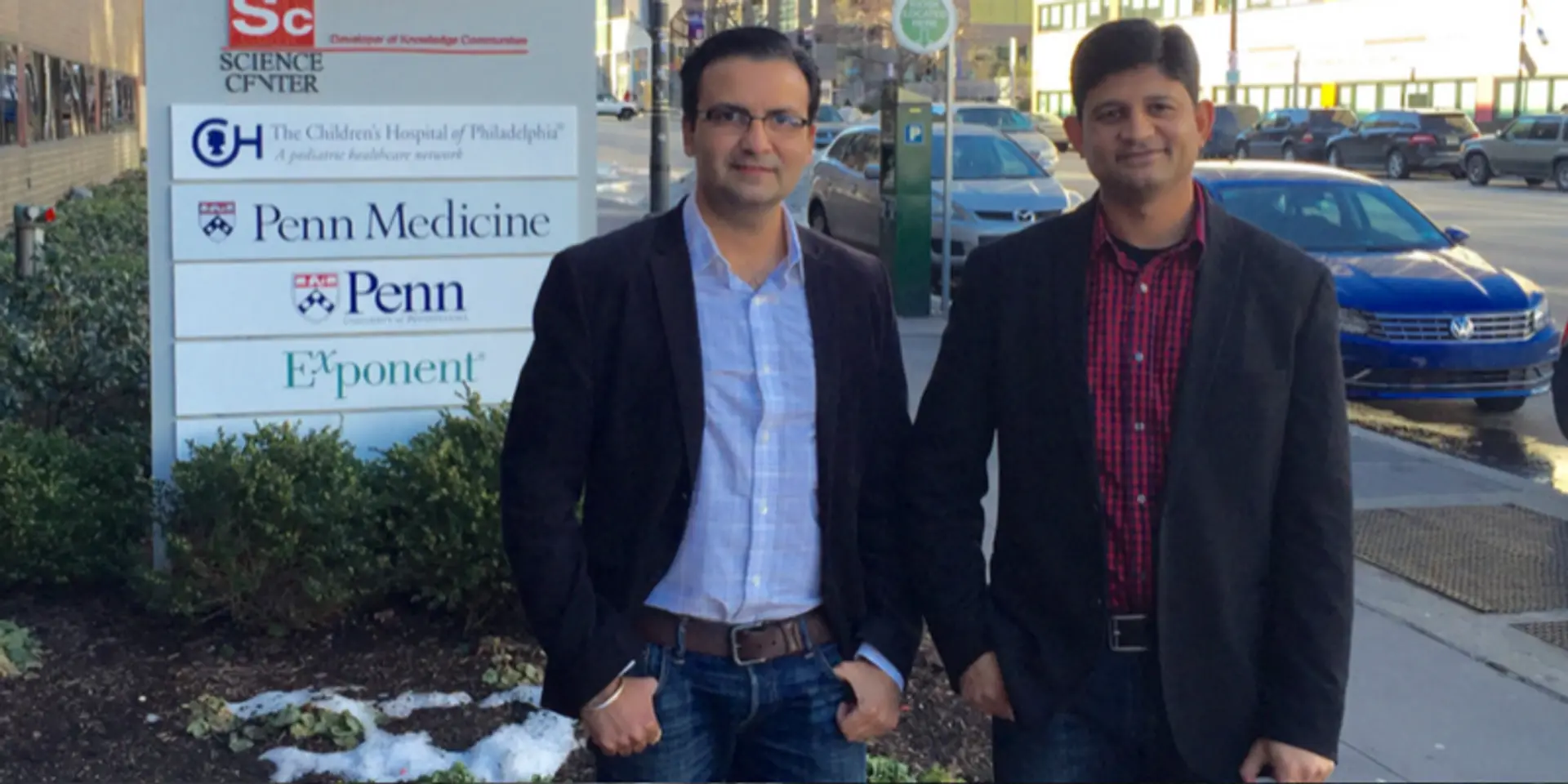Providing free validated tests, TrustCircle becomes first mental health app in Africa
Sachin turned his personal adversity around to launch a digital startup that uses mobile technology to make mental health care continuous, accessible, and affordable.
Thirty-nine-year-old Sachin Chaudhry, who now lives in San Francisco, California, is an entrepreneur and a dreamer. He is also a caregiver. His enterprise works to promote and foster mental healthcare, and this vision fits like a glove with his personal sense of responsibility, love, and care for his younger brother, Salil.
Mental well-being was an invisible concern
Salil fell prey to severe bullying in his school in their hometown, Ambala, Haryana. In 1994, Sachin remembers noticing a significant change in him one night at the dining table. The usually bubbly, cheerful 12-year-old was unusually quiet. Salil was eventually diagnosed with schizophrenia, and Sachin’s own life took a new course.

The family witnessed a devastating gap between the demand for mental healthcare and infrastructure and the actual supply in their society. Mental health was—and still is—a taboo topic.
I noticed the heart-wrenching weight that hung outside the doctor’s office. Inside, 10 minutes was all we got. That is the reality of life. My family had no social support. We had no network, recalls Sachin.
Let us build a circle of trust
He finally quit his full-time job and set up TrustCircle in 2015. This platform was recognised by the WHO Project and, with support from the government of Kenya, became the first mental health app in Africa.
Sunil Dhir, a partner at TrustCircle, too, has seen broken mental healthcare, and, for this team, their enterprise has always been more than just a job. Dr Dhir, Chief Medical Officer and business partner, says,
As a physician, I see a huge gap in demand and supply of mental healthcare services and TrustCircle mHealth innovations will not only help reduce this huge gap but also provide access to quality care for all.

TrustCircle believes in being a preventive, participatory, and predictive l platform. Its most remarkable offering to a world of increasing stress and decreasing wellness is a mobile test that users can access anonymously and free of cost. MHealth Tests are clinically validated—these standard, globally accepted tests to determine levels of depression, anxiety, stress, substance addiction, and others have been in use in psychiatry and psychology departments worldwide for about 40 years of medical history. TrustCircle’s innovation is in bringing the tests to people in the comfort of their own homes.
These digital tests—and a shortcut to the testing platform can be installed in mobile phones with the functioning features of an app, but without consuming any disc space—are intended to prevent mental ill health by informing users such that they can keep a tab on their own conditions of mind consistently, for example, by taking the concerned test once every week. Users can create an account on the platform, take a test, revisit their results at any later date, and compare new results with the old ones. This not only keeps them aware of psychological conditions, removing taboo about ‘visiting the shrink’, but also effectively warns them if their condition is deteriorating and demands intimate medical attention.

Being free, mHealth tests considerably reduce the cost of mental well-being, as anyone can access these tests anytime and from anywhere, without having to wait at doctors’ chambers or pay hefty fees to have checkups done.
Indeed, a psychological checkup at regular intervals is as important as a routine physical examination. Sachin asserts, “Mental health is nothing but brain health. The brain is a physical part of your body.” By making diagnostic tests free of cost and always at hand, TrustCircle is doing more than ensuring that there are fewer tragic cases like Salil’s—it is pushing forth a much-needed crusade for emotional and physiological well-being.
Enterprises are charged a nominal cost for using mHealth tests. Besides, organisations can use mHealth Connect, which is a product to find peers and local as well as global support groups, and mHealth Care, which connects users to appropriate resources of mental healthcare. Through these, TrustCircle attempts to design a means for community participation that lends support to suffering individuals and their families, and offers users warning signs that can be predictive of disease.
Sachin drew from the same medical and social shortcomings his family faced, and turned them into opportunities to create a visionary model of work.

He attended the United Nation’s Novus Summit in 2017 to support the UN’s 17 goals for sustainable development, and has been appointed an advisory board member at the Movement for Global Mental Health, 2017–2020. TrustCircle also received recognition at the International Digital Health Congress in Paris this year for ‘changing the game’ in mental healthcare. Frank Shankwitz, Ron Klein, Tonino Lamborghini, and other influential figures are now associated with this platform’s mission. Sachin feels indebted to his engineering team, based out of Bengaluru and headed by Krishna Balasubramanyam, for their untiring efforts.
If you really want to find purpose in your life, go back to your wounds
This was the advice he had once received from a wise man, and he knew that he had to return to the cause that his younger brother had offered him. His journey, dedicated to Salil, is to empower every individual with the knowledge and comfort that mental illness is not a taboo.
People need to know that this is okay. Whatever is pushed under the rug becomes a taboo, he muses. When you go through something difficult, you can either let it break you, or you can fight.
He speaks often and lovingly of Salil, who fights his circumstances with spirit and runs a shop in Ambala.
One cannot agree more with him that our societies are becoming more difficult to live in. However, there is hope when understanding sinks in of the respect and care every individual deserves, and when human beings begin to be considered as holistic entities made up of mind, body, and spirit. This, then, is a much-needed humanitarian movement. And, in keeping with this, Sachin wishes to build infrastructure for psychiatric patients who do not have a home after their parents’ deaths. “They should be taken care of,” he says.



